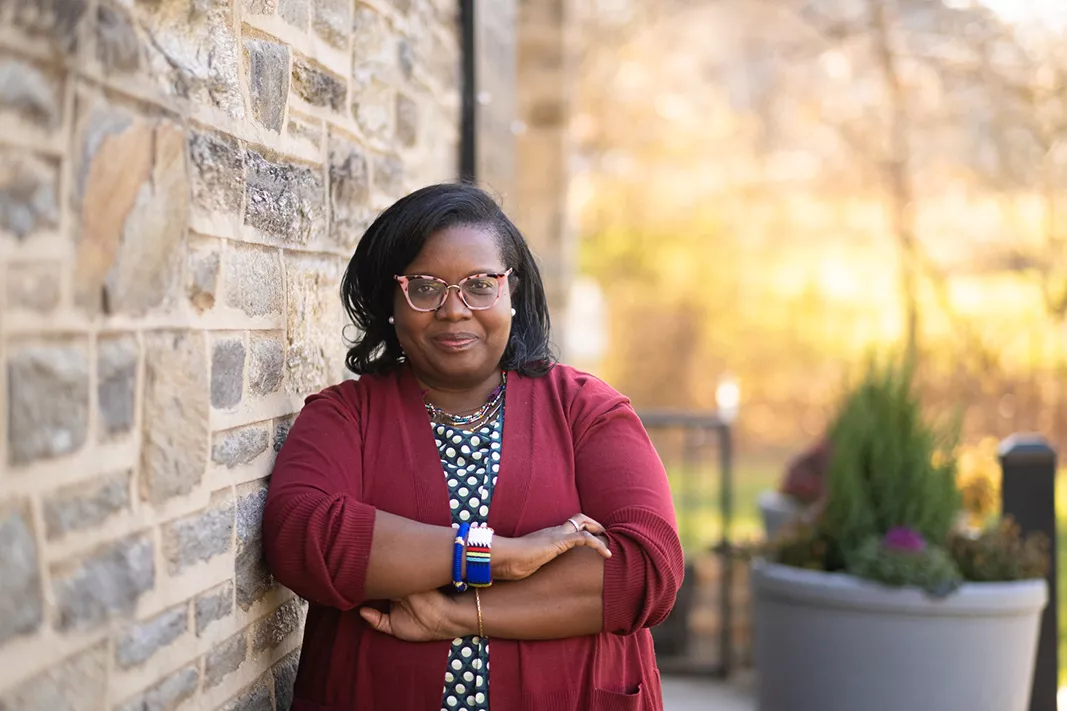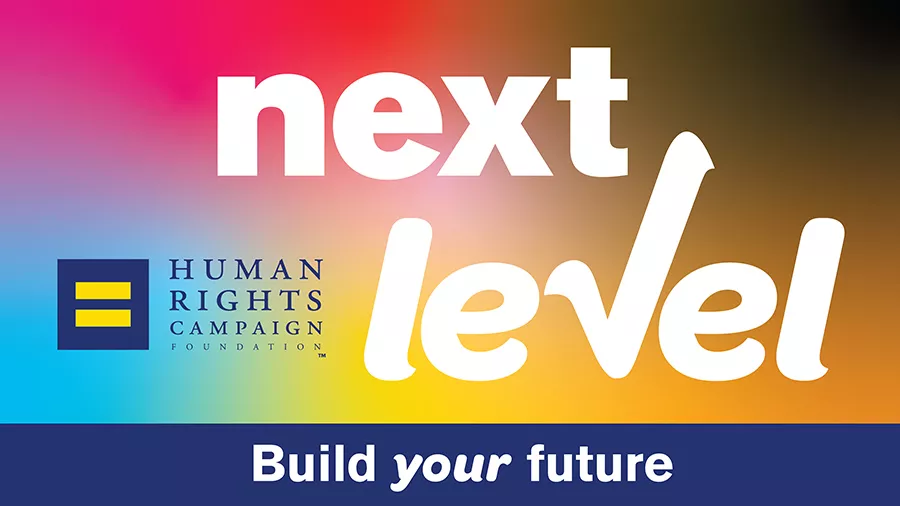Measuring Impact
News from GSSWSR: Bryn Mawr plays an important role in a new initiative from the Human Rights Campaign Foundation
The intent behind the Next Level program was clear: to help young adults in the LGBTQ+ community, particularly BIPOC, trans, and nonbinary individuals, build economic stability.
“But we weren’t 100 percent sure how to measure that,” says Ellen Kahn, M.S.S. ’93, vice president of programs and partnerships at the Human Rights Campaign (HRC) Foundation.
That’s where Tamarah Moss, newly tenured associate professor of social work and social research, came in. Moss, along with M.S.S. candidate Shelby Statham, is working to measure the outcomes of HRC Foundation’s Next Level pilot program, which is taking place at two LGBTQ+ community centers in Rochester, N.Y. and Allentown, Pa.
If the pilot proves successful, the program could be rolled out on a larger scale.
To gauge that success, Moss and Statham are surveying participants and administrators in the program to better understand how it assists in financial literacy, job readiness, and overall wellness, which includes identifying barriers to housing, food, and childcare affecting the participants. It’s not just how do they survive, Moss says, but “how do they thrive?”
The program came out of a need the HRC Foundation recognized in helping individuals in the LGBTQ+ community who were struggling with economic stability, such as setting up checking accounts, establishing or improving credit, or completing education.
“When you think about where the term ‘marginalized’ comes from, you’re just pushed outside in all of these critically important parts of life,” Kahn says. “One example, especially in the trans, nonbinary, and gender-expansive communities, is there can be anxiety literally walking into a brick-and-mortar bank to open an account.”
Between Kahn, Moss, and Statham, Bryn Mawr is well-represented in this work.
“We work with social work–trained folks at the HRC Foundation that bring the values and perspective of our profession,” Moss says, “aligning with our practice code of ethics, and our acknowledgment of person and environment and thinking through not just finances and being ready for work but the wellness piece given the disparities faced by LGBTQ+ communities and the systems that they navigate every day.”
Statham has worked in rape crisis centers and recognizes that evaluation can seem “non-trauma informed.” But in working with Moss, she also sees how analysis can help improve systems and benefit the mission of an organization. “One thing I’ve really loved working with Dr. Moss and HRC is the attention to centering cultural responsiveness throughout the entire program development,” Statham says.
“When you think about where the term ‘marginalized’ comes from, you’re just pushed outside in all of these critically important parts of life." - Ellen Kahn, M.S.S. ’93
The community-based organizations (CBOs) in the pilot were chosen in part because their locations reflected both urban and rural areas. LGBTQ+ centers in major cities are more likely to have this kind of programming, the HRC Foundation found when doing background research for Next Level. The evaluations by Moss and Statham also include surveying the CBO teams to see what support the HRC Foundation can provide them and how they can build a stronger relationship and further their mutual goals.
“I think it’s expanded everyone’s idea of what partnership looks like and who those partners can be,” Moss says.
Published on: 05/30/2024

